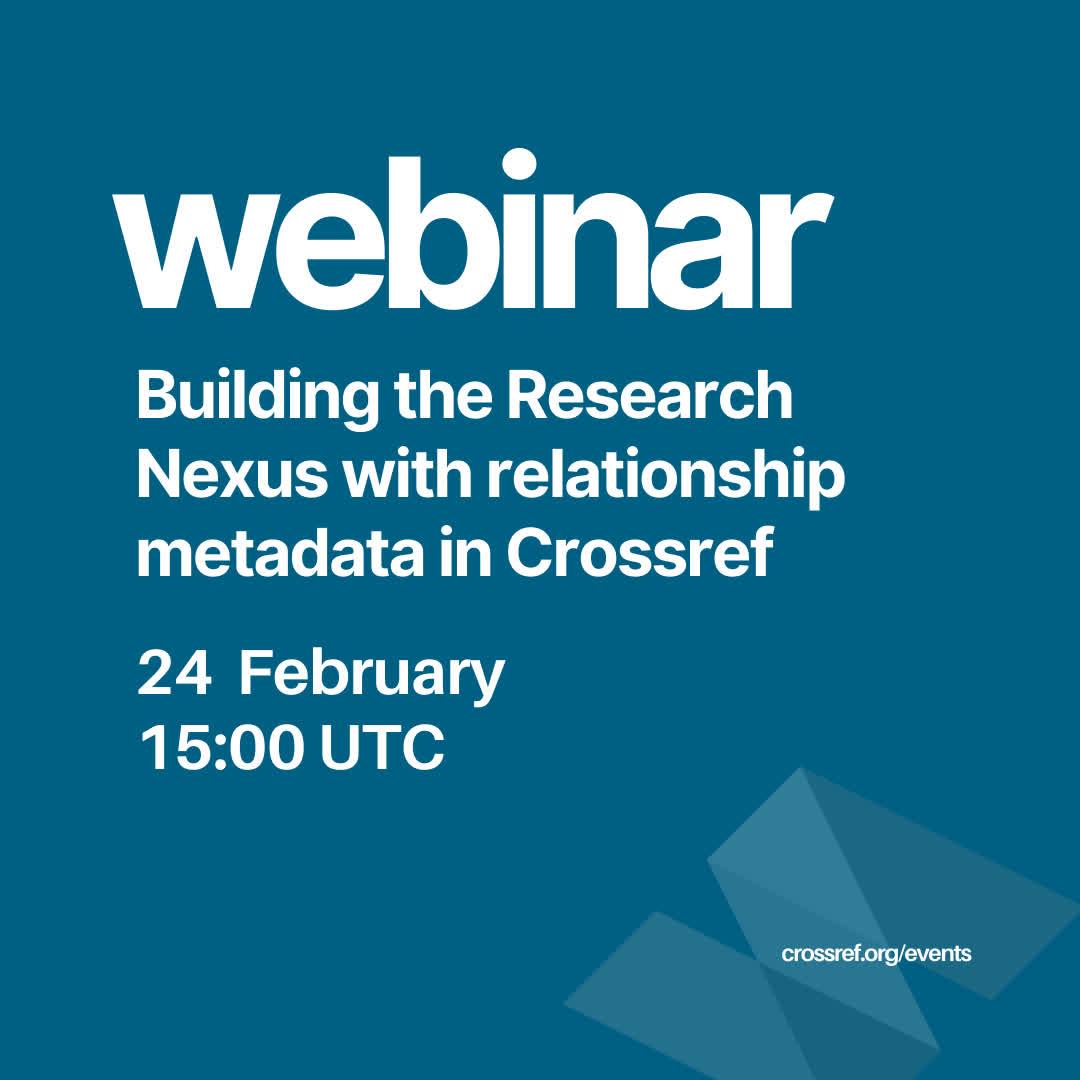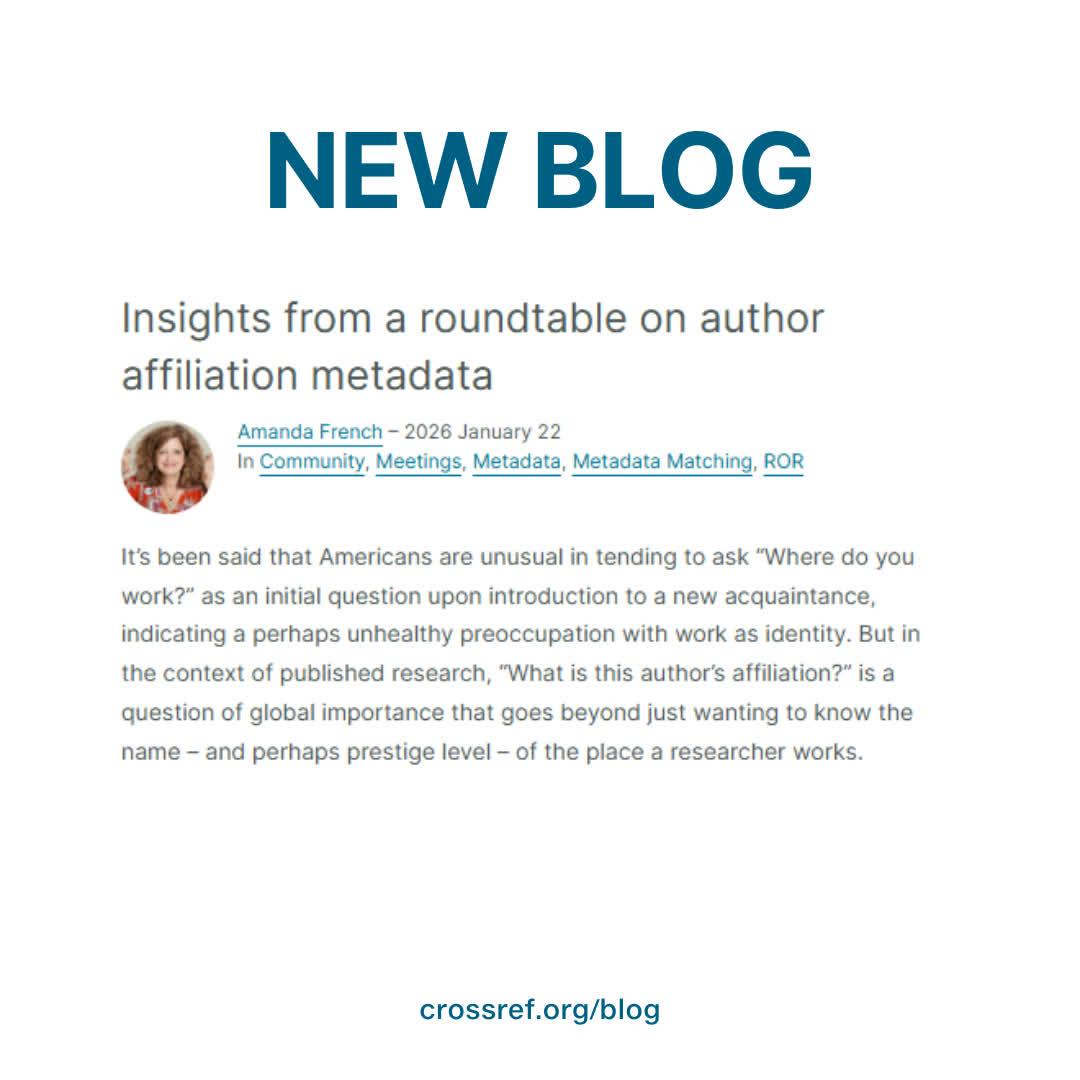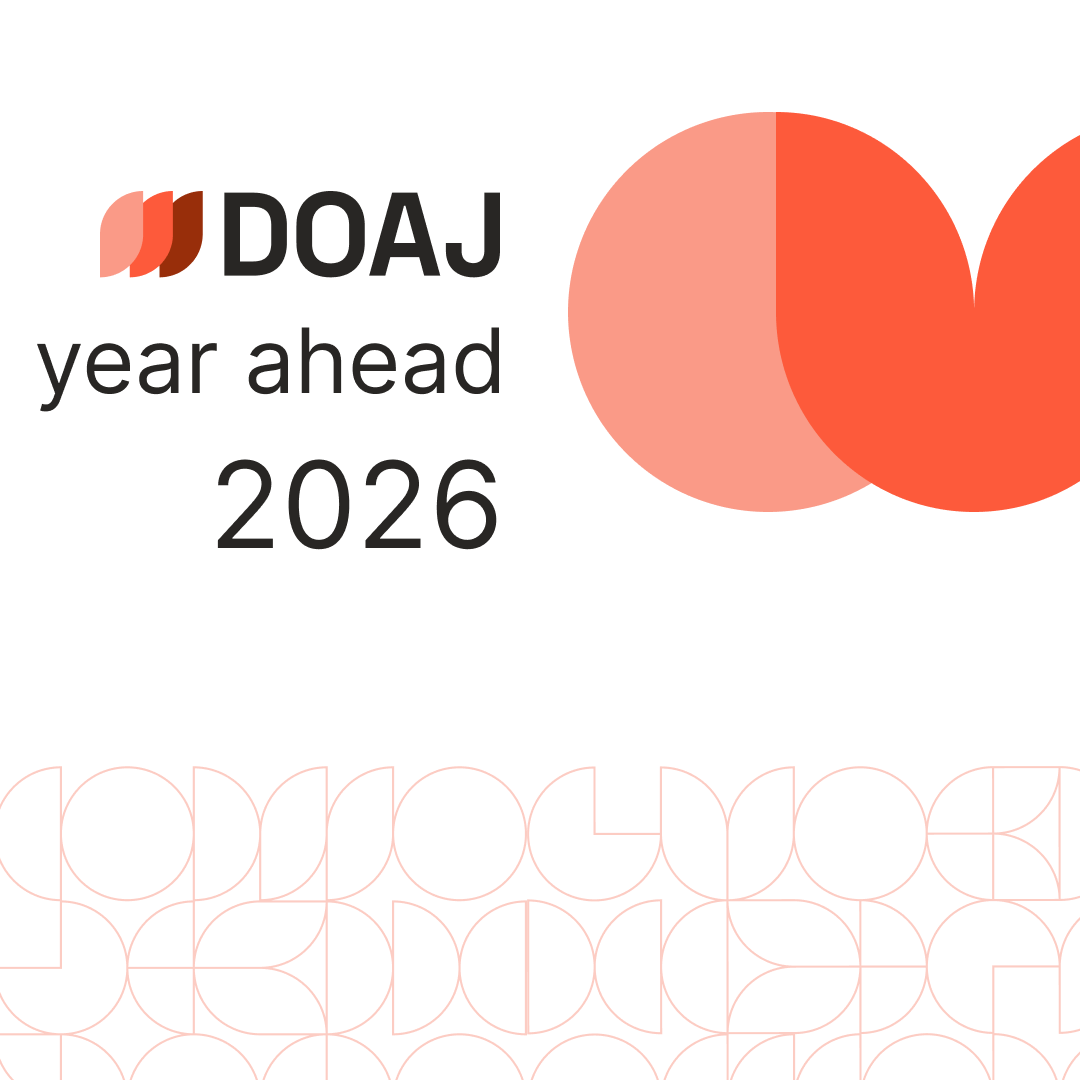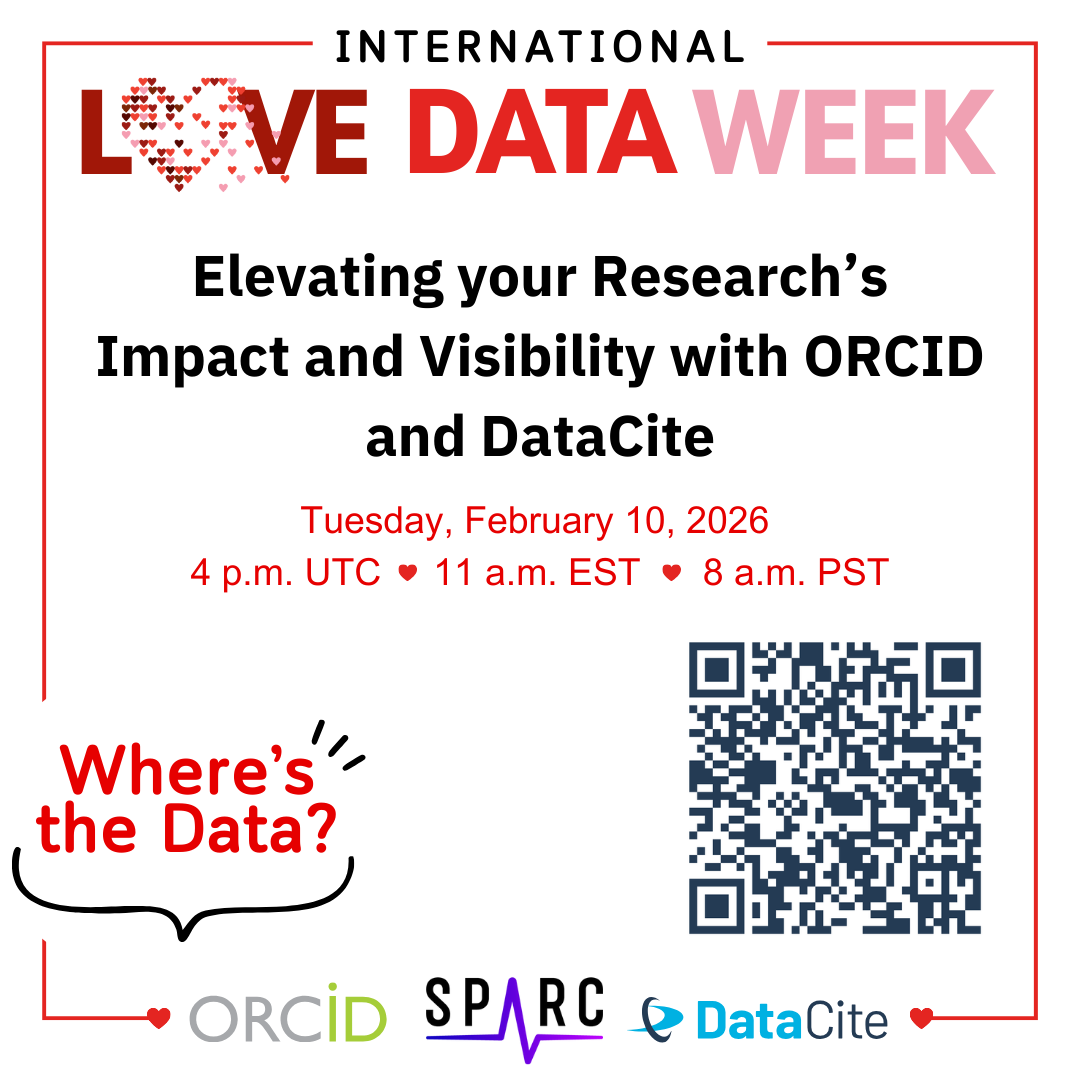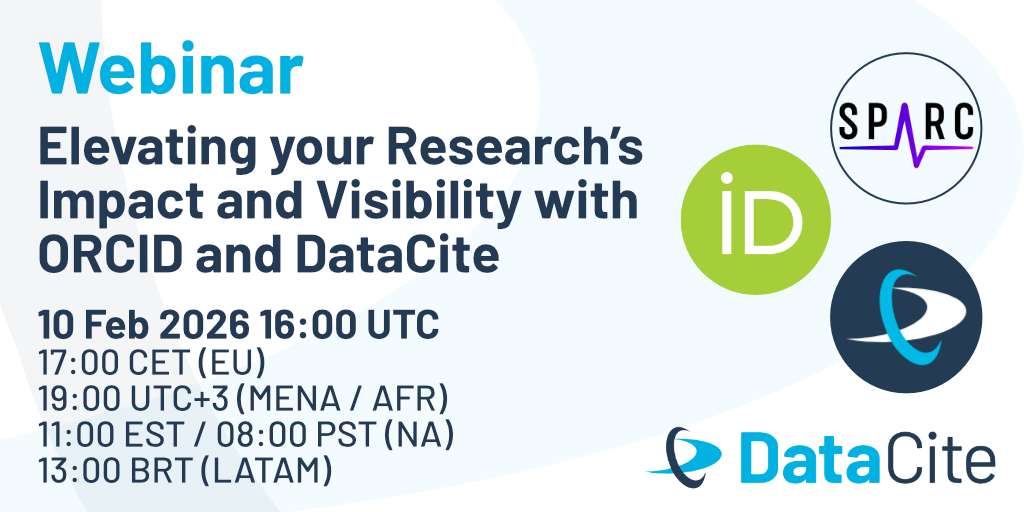I was surprised to learn that gzip streams encode which operating system did the compression. I built a little tool, "gzpeek", to inspect this metadata (and more): https://evanhahn.com/introducing-gzpeek/
ICYMI: Our spotlight on Indonesia
A thriving publishing ecosystem, DOI adoption, strong sponsorship networks, and growing engagement in #metadata quality.
Read the full story: https://doi.org/10.64000/ww92x-8wp52
#scholarlypublishing #Crossref #Indonesia
Join us on 24 February for the webinar Building the #ResearchNexus with relationship #metadata in Crossref. This session explores how relationship metadata supports a more complete and reliable scholarly record. Register here: https://crossref.zoom.us/webinar/register/1917700446668/WN_TumI3wI1Q4WmghlOfMverA
3 more days until the webinar Building the #ResearchNexus with relationship #metadata in Crossref. Explore real-world use cases and learn how relationship #metadata helps preserve the scholarly record.
Save your spot: https://crossref.zoom.us/webinar/register/1917700446668/WN_TumI3wI1Q4WmghlOfMverA
3 more days until the webinar Building the #ResearchNexus with relationship #metadata in Crossref. Explore real-world use cases and learn how relationship #metadata helps preserve the scholarly record.
Save your spot: https://crossref.zoom.us/webinar/register/1917700446668/WN_TumI3wI1Q4WmghlOfMverA
Have you seen the new EUSSET conference paper template? With it, ECSCW 2026 papers feature #ORCID integration for the first time, letting readers easily find more of your work. Cheers to our friends at @ORCID_Org and yay for accessible academic metadata!

Why does author affiliation metadata matter? We partnered with OA Switchboard to discuss what's working and what needs improvement.
Read more: https://doi.org/10.64000/sy43h-n3x11 #metadata #research #funders #librarians #community
Our next webinar sessions are coming up soon! Don't miss the chance to learn, connect, and ask your questions live. Dates and registration details: https://www.crossref.org/events/metadata-health-check-webinars/ #metadata #research #funders #librarians #community
💕 February 9 – 13 2026 is International Love Data Week #LoveData26, but PKP celebrates #DataSharing all year round.
Considering the theme “Where’s the Data” in this post, the answer at PKP is clear — the data is everywhere and #interoperability is how we help it flow:
https://pkp.sfu.ca/2026/02/12/love-data-week-pkp-interoperability/
@crossref @ORCID_Org @DOAJ @ResearchOrgs @OpenAIRE @datacite
#OpenInfrastructure #FOSS #Metadata #DOIs #PIDs #OpenAccess #ScholComm #ScholarlyPublishing #AcademicChatter
New research highlights barriers to proper dataset citation.
A study in the Data Science Journal finds that many commonly used reference managers do not adequately support data citation workflows, slowing recognition and reuse.
🔗 https://datascience.codata.org/articles/10.5334/dsj-2026-005
#OpenScience #DataCitation #FAIRdata #ResearchData #OpenResearch #Metadata
Explore real-world use cases and learn how relationship #metadata helps preserve the scholarly record. Join us for a webinar on 24 February. https://crossref.zoom.us/webinar/register/1917700446668/WN_TumI3wI1Q4WmghlOfMverA
💕 February 9 – 13 2026 is International Love Data Week #LoveData26, but PKP celebrates #DataSharing all year round.
Considering the theme “Where’s the Data” in this post, the answer at PKP is clear — the data is everywhere and #interoperability is how we help it flow:
https://pkp.sfu.ca/2026/02/12/love-data-week-pkp-interoperability/
@crossref @ORCID_Org @DOAJ @ResearchOrgs @OpenAIRE @datacite
#OpenInfrastructure #FOSS #Metadata #DOIs #PIDs #OpenAccess #ScholComm #ScholarlyPublishing #AcademicChatter
How can regional consortia lower the barrier to #ORCID adoption? 🌍
Join us on 24 Feb for an AMA on ORCID Community Hubs. We're exploring how platforms in South Africa, NZ, & Uganda simplify integration.
Featuring:
✅ TENETNews
✅ ORCID_NZ
✅ Uganda ORCID Hub
Register: https://orcid-org.zoom.us/webinar/register/4417703024065/WN_uIo4fJPVT7mlsTr76QvMbA
How can regional consortia lower the barrier to #ORCID adoption? 🌍
Join us on 24 Feb for an AMA on ORCID Community Hubs. We're exploring how platforms in South Africa, NZ, & Uganda simplify integration.
Featuring:
✅ TENETNews
✅ ORCID_NZ
✅ Uganda ORCID Hub
Register: https://orcid-org.zoom.us/webinar/register/4417703024065/WN_uIo4fJPVT7mlsTr76QvMbA
RE: https://mastodon.online/@crossref/116025690939131294
It is #LoveData26 Week after all -- but this work goes on all year round!
Our partners at @crossref invite you to improve your #metadata quality with #OpenJournalSystems on February 12 at 8 AM PT ⤵️
The Year Ahead 🗓️
#DOAJ 2026 activities include:
✔️reviewing editorial processes & transparency
✔️a multifaceted look at metadata
✔️reviewing & renewing tech solutions;
✔️continuing active participation in #DiamondOA
#QualityCriteria #community #transperancy #metadata
https://blog.doaj.org/2026/02/10/our-year-ahead-2026-activities/
The Year Ahead 🗓️
#DOAJ 2026 activities include:
✔️reviewing editorial processes & transparency
✔️a multifaceted look at metadata
✔️reviewing & renewing tech solutions;
✔️continuing active participation in #DiamondOA
#QualityCriteria #community #transperancy #metadata
https://blog.doaj.org/2026/02/10/our-year-ahead-2026-activities/
RE: https://mastodon.online/@crossref/116025690939131294
It is #LoveData26 Week after all -- but this work goes on all year round!
Our partners at @crossref invite you to improve your #metadata quality with #OpenJournalSystems on February 12 at 8 AM PT ⤵️
How can you link and track research outputs & activities to save time and elevate impact?
ORCID iDs and DataCite DOIs work together to make this possible! Find out how on 10 February at our webinar in honor of Love Data Week.
https://datacite.zoom.us/webinar/register/1917679630355/WN_H5S9VYLZSKqE1g2-XEaR8Q
#LoveData26 @ORCID_Org
@pmarrai
@kelly
#ORCID #DataCite #SparcScience #PersistentIdentifier #PID #DOI #OpenScience #OpenResearch #OpenInfrastructure #Research #Researchers #Impact #ResearchData #Metadata
"Where's the Data?" is this year's #LoveDataWeek theme. ❤️ At Crossref, matching is how we answer that question—filling in the gaps to connect articles to datasets, #preprints to publications, research to funders. More 👉: https://crossref.org/community/special-programs/metadata-matching/ #metadata
